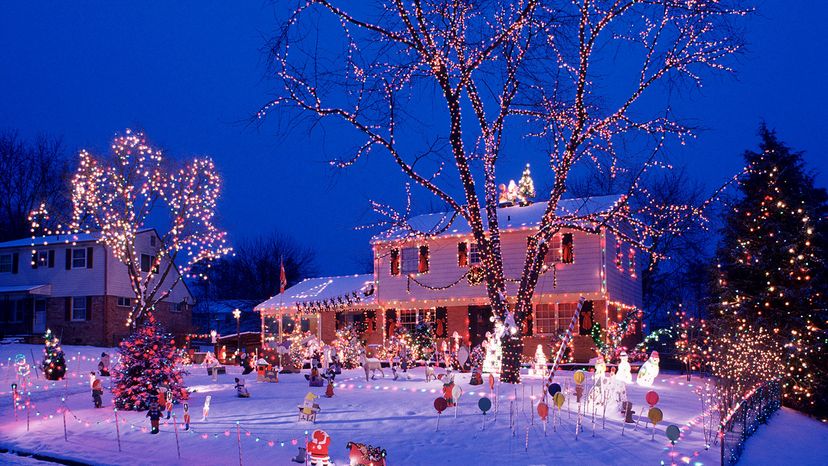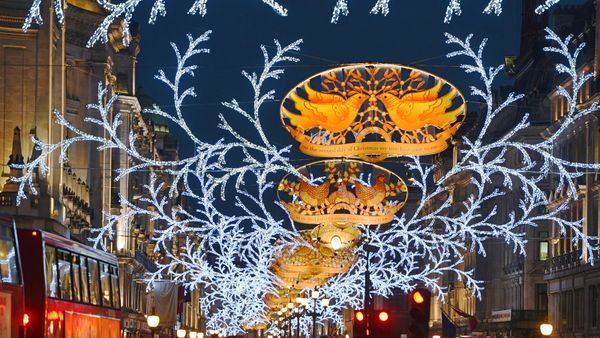
Christmas lights are a big part of the holiday season. As November and December roll around, you might see strands of lights everywhere — on Christmas trees, houses, shrubs, bushes and even the occasional car! Have you ever wondered how these lights work? Why is it that if you pull out or break one of the bulbs, the whole strand of lights goes out? And how do they create the lights that sequence in different color patterns?
If you were to go back in time 30 or 40 years and look at how people decorated their houses and trees with lights, you would find that most people used small 120-volt incandescent bulbs. Each bulb was a 5- or 10-watt bulb like the bulb you find in a night-light. You can still find strands of these bulbs today, but they aren't very common anymore for three reasons:
Advertisement
- They consumed a lot of power. If you had a strand of 50 5-watt bulbs, the strand consumed 250 watts! Consider that most people needed two or three strands to do a tree and five or 10 strands to do a house and you are talking about a lot of power!
- Because the bulbs consumed so much power, they generated a lot of heat. When used indoors, three strands at 250 watts per strand were generating as much heat as a 750-watt space heater! The heat from the individual bulbs could also melt things.
- They were expensive. You could buy a 10-pack of miniature bulbs for about a dollar. The large bulbs might cost five to 10 times more.

The one advantage of this arrangement is that a bulb failure has absolutely no impact on the rest of the bulbs. That's because a 120-volt bulb system places the bulbs in parallel, like this diagram on the left.
You can have two, 20 or 200 bulbs in a strand that is wired in parallel. The only limit is the amount of current that the two wires can carry.
In this article, we'll look at Christmas lights so you can understand everything about them, starting with energy-saving Christmas mini-lights.
